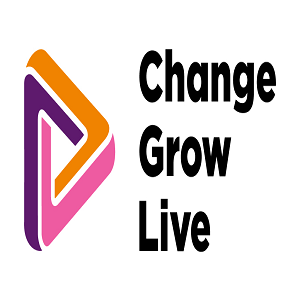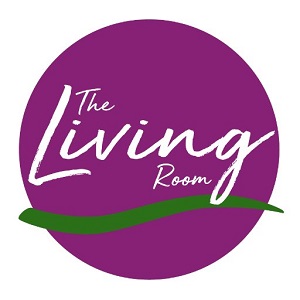Drug & Alcohol Rehab in Stevenage

How Does Rehab Work?
Rehab involves holistic strategies that are designed to deal with individual addiction with support, wellness methods, and steps to restore good mental health. Clients are introduced to life-changing, supportive, and therapeutic programmes that are led by experienced and professional therapists. Along with individual therapeutic intervention, individuals can benefit from the support received from group sessions. Addictions are treated through an inpatient or an outpatient programme. For those who enter an inpatient rehab programme, the programme requires that one stay inside the centre or the facility for the duration of treatment. Outpatient services are an option for those with less severe dependencies and will meet with a counsellor weekly while attending work commitments and residing at home.
What Happens During Residential Rehab?
Taking the brave step towards recovery starts with rehabilitation. It is a process, and it takes time but with dedication and support relapse can be prevented. If you’re unsure about what rehab entails, we provide a breakdown of what to expect.
Prior to entering treatment, every individual will be assessed by a medical professional. The aim is to create a treatment plan suited to individual health and wellness needs. This is particularly important for those with a history of addiction and comorbid mental conditions including depression, anxiety or bipolar disorder.
Assessments are followed by detox. Individuals who enter detox will begin withdrawing from substances including alcohol, as the body returns to a normal state of function. This timeline will differ depending on the type of substance used and the length of dependency. Only when the system no longer contains the drug will individuals participate in a treatment plan.
Rehabilitation includes meeting with a therapist for private & group sessions, participation in skill-building activities as with an inpatient or residential rehab, or group meetings that are common with outpatient 12 Step programmes. We explore the various phases of rehab in further detail.
1. Assessment

To receive the best treatment to meet your needs, an assessment will be the first stage of the recovery approach. Reviews are carried out with a medical professional and can include a telephone screening. The professional asks questions with regards to your overall health, your substance use, any history of addiction, and whether you may have any comorbid mental health problems. A telephone assessment supplies staff members with important information that will help to safely manage the detox process.
To help you or someone you know, receive the best possible therapy for addiction and substance use, it is important to receive an individual assessment by a dedicated professional. The assessment will aid the course of therapy including treatment for all those with comorbid illnesses such as anxiety.
2. Detox

If you are addicted to drugs and/or alcohol or you have a substance in your body, you must undergo detox before you can proceed with a therapeutic programme. Detox is performed in an inpatient facility or a medical facility. During detoxification, the drug is gradually cleared from the body which typically results in withdrawal symptoms.
The reason medical detoxification from substances is advised is owed to the difficulties and the nature of withdrawal symptoms that may occur during this time. Without reliance on a professional service and medical attention, the risk of relapsing is heightened. Individuals who receive detox and an assessment will be required to participate in a therapeutic programme which involves residential rehab or outpatient programmes.
3. Therapy

Therapy involves skill building, coping strategies, and the exploration of the reasons behind additive behaviours. It can be provided in an inpatient or an outpatient plan, each offering its benefit and potential drawbacks.
Step by Step Process for Residential Rehab
To understand your medical and mental health history.
Arrange a suitable date to begin your journey to recovery.
Begin the managed withdrawal process from substances including alcohol.
To understand the root cause of addiction and how to overcome it.
Aftercare is provided to help manage the risk of relapse.
To help heal the wounds that addictive behaviour has caused others.
Find your Nearest Rehab Centre in Stevenage
The nearest rehab centre is Spectrum Drug and Alcohol Recovery Service.
Address: Spectrum Drug and Alcohol Recovery Service – Hertford, 1 Yeomans Ct, Ware Rd, Hertford SG13 7HJ, United Kingdom
Call 0333 4444 432 to discuss your alcohol or drug rehab requirements and any other questions you may have about the process of residential rehab.
Outpatient Addiction Services in Stevenage
Inpatient or outpatient treatment for dependence can be determined by your budget requirement & life circumstances. Nevertheless, it is an individual process that requires commitment and awareness to succeed. To help you understand these different processes, we look at outpatient addiction services compared with residential rehab.
An outpatient service does not require you to remain at the residence for treatment. If you have work, family, or other lifestyle commitments, outpatient programmes allow you to concentrate on these areas while visiting a facility or counsellor to receive addiction therapy and other care services.
Private Outpatient programmes involve therapy with counselling sessions delivered by a therapist/counsellor. Sessions typically last between 60 and 90 minutes. Free alternatives do exist through one of the many reputable charities in the UK (Turning Point), but it does not provide the same individualised care that private services provide.
The Benefits of Outpatient Services
A private outpatient programme is tailored to address the needs of the client. The aim is to deliver a quality standard of therapy and introduce individuals to the coping mechanisms they need to become aware of the early signs of relapse. – outpatient programmes are also considered because it allows individuals to remain working or to tend to their family while receiving help. – These services are more affordable compared with residential programmes.
The Challenges of Outpatient Services
Because one remains at home and vulnerable to the same triggers, there may be a higher risk of relapse and unsuccessful attempts to complete an outpatient programme. Although the NHS and other UK-based charities provide free addiction services, treatment is not tailored to the individual’s needs and waiting lists are to be expected.

How Much Does Rehab Services Cost in Stevenage?
You can expect to pay between £1500 – £4000 per week for residential rehab. If you cannot afford a private addiction plan, you can rely on free and more affordable recovery programmes to deal with your addiction issues. There are a number of charities that assist individuals with free and affordable services.
Fortunately, free programmes are offered by organisations including the NHS and charities such as Turning Point (that requires self-referrals). Other organisations that offer free and community-based programmes for drug or alcohol addiction include Alcoholics Anonymous (AA), Cocaine Anonymous, and Narcotics Anonymous.
Support Groups in Stevenage

Stevenage Feelings
Methodist Church, High St, Stevenage Old Town (Side door, small hall) SG1 3LS

Stevenage Online
High St Methodist Church, Sish Ln, Stevenage Old Town (Side Door, Small Hall) SG1 3LS

Stevenage Lunchtime
All Saints Church, The Oval, Vardon Rd SG1 5RD
The Pros and Cons of Seeking Treatment in Your Local Area
Pros
1. You are familiar with the area which may provide a layer of comfort/safety.
2. Family or friends can easily travel to visit or are close by.
3. You could save on the costs of travelling long distances for treatment, or free addiction services may only be offered in your hometown.
Cons
1. A local environment means access to drug dealers or other triggers. This is more of an issue if you choose outpatient programmes.
2. Not considering locations outside your area could result in missed opportunity for more valuable and rewarding programmes.
3. Addiction treatment programmes that are close by don’t always offer the best standard of treatment.
In the event you are unsure about a particular addiction treatment service, you can look to the CQC website for more information including a rating of that service.


